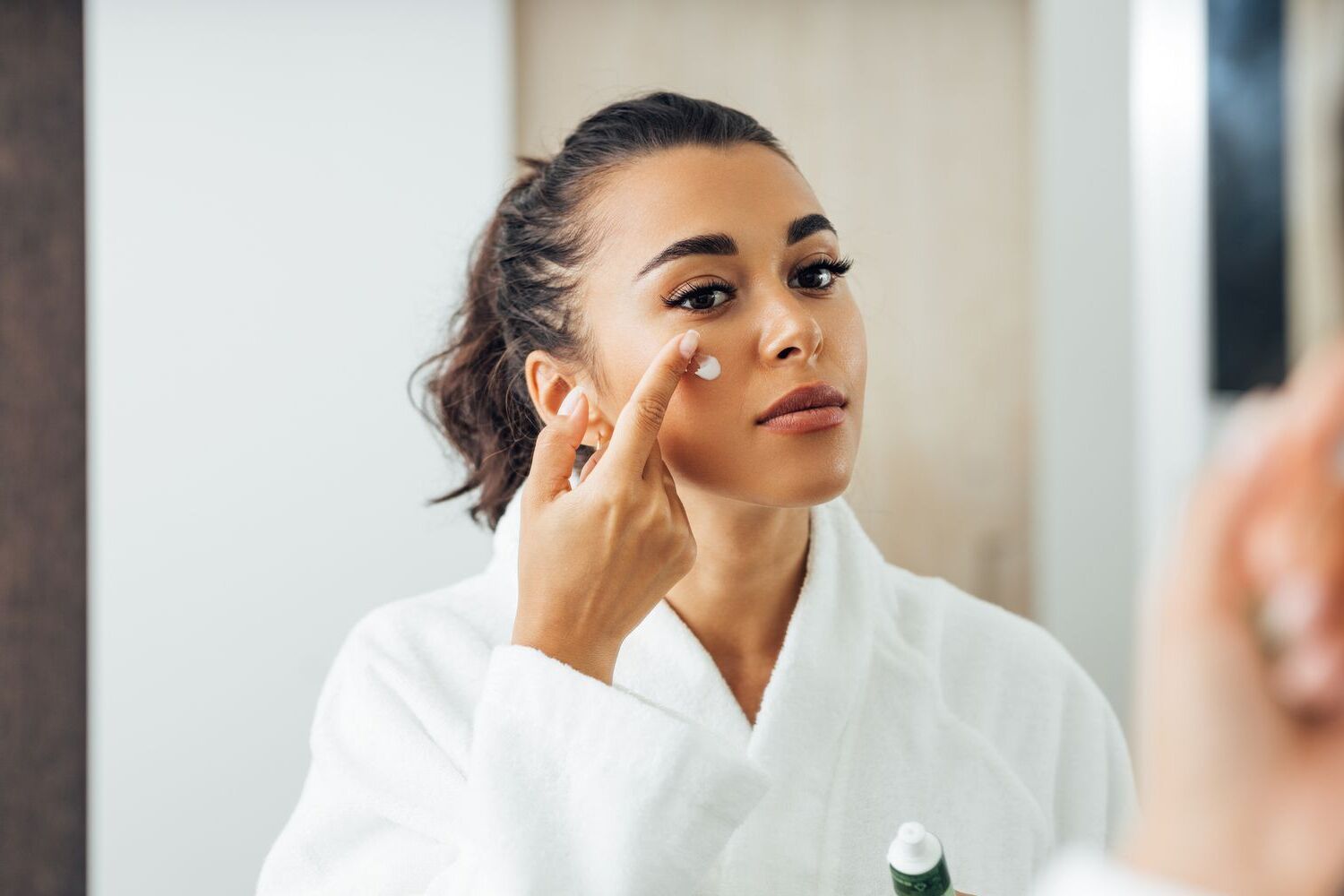
Retinol—a word you've probably heard tossed around in skincare circles. But what exactly is it? Retinol is a type of vitamin A that helps with skin renewal, making it a popular ingredient in anti-aging products. It can reduce wrinkles, improve skin texture, and even out skin tone. But there's more to this powerhouse ingredient than meets the eye. From its origins to its benefits and potential side effects, understanding retinol can help you make informed decisions about your skincare routine. Ready to dive into the world of retinol? Here are 60 facts that will give you the full scoop on this skincare superstar.
What is Retinol?
Retinol, a derivative of vitamin A, is a popular ingredient in skincare. Known for its anti-aging properties, it helps improve skin texture and tone. Here are some fascinating facts about retinol.
- Retinol is a type of retinoid, which is a class of compounds derived from vitamin A.
- It was first used in skincare in the 1970s to treat acne.
- Retinol works by increasing cell turnover, which helps to shed dead skin cells and promote new cell growth.
- It can help reduce the appearance of fine lines and wrinkles.
- Retinol is also effective in treating hyperpigmentation and dark spots.
- It can improve skin texture by making it smoother and more even.
- Retinol is available in various forms, including creams, serums, and oils.
- It is often combined with other ingredients like hyaluronic acid and vitamin C for enhanced benefits.
- Retinol can make the skin more sensitive to the sun, so it's important to use sunscreen during the day.
- It is recommended to start with a lower concentration of retinol and gradually increase it to avoid irritation.
Benefits of Retinol
Retinol offers numerous benefits for the skin. From anti-aging to acne treatment, its versatility makes it a staple in many skincare routines.
- Retinol stimulates collagen production, which helps to firm and plump the skin.
- It can help to unclog pores, reducing the occurrence of acne breakouts.
- Retinol has antioxidant properties that protect the skin from free radical damage.
- It can improve the overall radiance and brightness of the skin.
- Retinol can help to reduce the appearance of large pores.
- It can be used to treat keratosis pilaris, a condition that causes rough, bumpy skin.
- Retinol can enhance the effectiveness of other skincare products by allowing them to penetrate deeper into the skin.
- It can help to fade post-inflammatory hyperpigmentation caused by acne.
- Retinol can improve the elasticity of the skin, making it look more youthful.
- It can help to even out skin tone and reduce redness.
How to Use Retinol
Using retinol correctly is crucial to avoid irritation and maximize its benefits. Here are some tips on how to incorporate retinol into your skincare routine.
- Start by using retinol once or twice a week and gradually increase the frequency.
- Apply retinol at night, as it can make the skin more sensitive to sunlight.
- Use a pea-sized amount of retinol for the entire face.
- Avoid using retinol around the eyes and mouth, as these areas are more prone to irritation.
- Follow up with a moisturizer to help hydrate the skin and reduce dryness.
- Avoid using retinol with other strong active ingredients like alpha hydroxy acids (AHAs) and beta hydroxy acids (BHAs).
- If you experience irritation, reduce the frequency of use or switch to a lower concentration of retinol.
- Always use sunscreen during the day when using retinol to protect the skin from UV damage.
- Be patient, as it can take several weeks to see noticeable results from retinol.
- Consult with a dermatologist if you have any concerns or questions about using retinol.
Retinol Myths and Misconceptions
There are many myths and misconceptions about retinol. Let's debunk some of the most common ones.
- Myth: Retinol thins the skin. Fact: Retinol actually thickens the skin by stimulating collagen production.
- Myth: Retinol is only for mature skin. Fact: Retinol can benefit all skin types and ages.
- Myth: You can't use retinol if you have sensitive skin. Fact: Sensitive skin can tolerate retinol if introduced gradually and used with caution.
- Myth: Retinol causes sun sensitivity. Fact: Retinol itself doesn't cause sun sensitivity, but it can make the skin more prone to sunburn.
- Myth: Retinol results are immediate. Fact: It can take several weeks to see noticeable improvements from retinol.
- Myth: More retinol is better. Fact: Using too much retinol can cause irritation and dryness.
- Myth: Retinol can't be used with other skincare ingredients. Fact: Retinol can be combined with other ingredients like hyaluronic acid and niacinamide for enhanced benefits.
- Myth: Retinol is not safe for long-term use. Fact: Retinol is safe for long-term use when used correctly.
- Myth: Retinol is only for the face. Fact: Retinol can be used on other areas of the body, such as the neck and hands.
- Myth: Retinol is expensive. Fact: There are affordable retinol products available that are effective.
Retinol in Different Forms
Retinol comes in various forms, each with its own unique benefits. Here are some of the most common forms of retinol.
- Retinol creams are great for dry skin, as they provide hydration and nourishment.
- Retinol serums are lightweight and easily absorbed, making them ideal for oily and combination skin.
- Retinol oils are perfect for those with very dry or mature skin, as they provide intense hydration.
- Retinol gels are suitable for acne-prone skin, as they are non-comedogenic and won't clog pores.
- Retinol eye creams are specifically formulated for the delicate skin around the eyes.
- Retinol body lotions can be used to treat rough, bumpy skin on the body.
- Retinol pads are pre-soaked with retinol and other beneficial ingredients for easy application.
- Retinol masks provide a concentrated dose of retinol for a more intensive treatment.
- Retinol spot treatments target specific areas of concern, such as dark spots and blemishes.
- Retinol lip treatments help to smooth and plump the lips.
Retinol Alternatives
For those who can't tolerate retinol, there are several alternatives that offer similar benefits. Here are some of the best retinol alternatives.
- Bakuchiol is a plant-based alternative to retinol that is gentle on the skin.
- Rosehip oil contains natural vitamin A and has similar anti-aging benefits to retinol.
- Niacinamide helps to improve skin texture and tone, much like retinol.
- Vitamin C is a powerful antioxidant that can brighten the skin and reduce the appearance of fine lines.
- Alpha hydroxy acids (AHAs) exfoliate the skin and promote cell turnover, similar to retinol.
- Beta hydroxy acids (BHAs) are effective in treating acne and improving skin texture.
- Peptides stimulate collagen production and help to firm and plump the skin.
- Retinaldehyde is a less irritating form of vitamin A that offers similar benefits to retinol.
- Adapalene is a prescription-strength retinoid that is less irritating than retinol.
- Tretinoin is a prescription retinoid that is more potent than retinol and offers faster results.
The Final Word on Retinol
Retinol is a powerhouse in skincare. It helps reduce wrinkles, boosts collagen, and fights acne. But, it’s not for everyone. Sensitive skin types should be cautious. Start with a lower concentration and use it every other night. Always pair it with sunscreen during the day. Retinol can make your skin more sensitive to the sun. Consistency is key. Results take time, usually a few months. Don’t mix retinol with other strong actives like vitamin C or benzoyl peroxide. They can cause irritation. Moisturize well to combat dryness. Consult a dermatologist if unsure. They can guide you on the best way to incorporate retinol into your routine. Remember, patience and proper use will lead to glowing, youthful skin. Happy skincare journey!
Was this page helpful?
Our commitment to delivering trustworthy and engaging content is at the heart of what we do. Each fact on our site is contributed by real users like you, bringing a wealth of diverse insights and information. To ensure the highest standards of accuracy and reliability, our dedicated editors meticulously review each submission. This process guarantees that the facts we share are not only fascinating but also credible. Trust in our commitment to quality and authenticity as you explore and learn with us.


